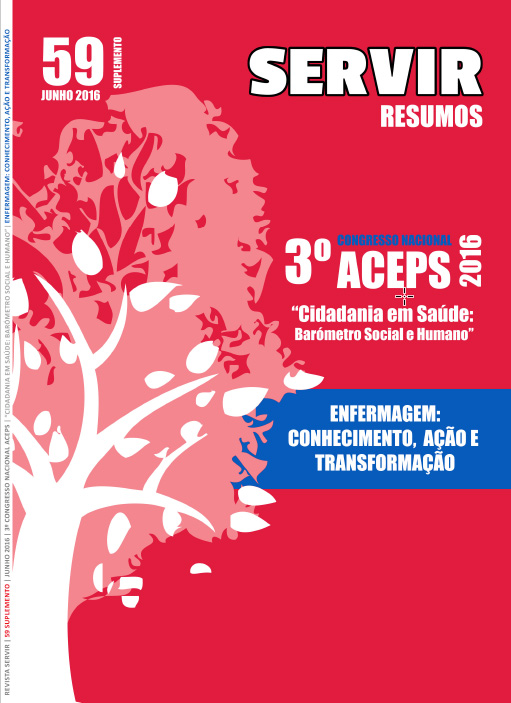Rheumatoid arthritis
implications on the functional capacities of people
DOI:
https://doi.org/10.48492/servir0259.23177Palabras clave:
Rheumatoid arthritis, Sleep, Ache, FunctionalityResumen
Introduction
Rheumatoid Arthritis (RA) is a disease with intense implications on the functional capacities of people and significant side effects not only in terms of physical functioning, but also at the emotional, family, social and economic levels.
Objectives
To evaluate the functional capacity of people with rheumatoid arthritis and analyze its connection to sociodemographic, clinical, pain and quality of sleep variables.
Methods
Non experimental, cross-sectional, descriptive, correlational and quantitative approach study, carried out in a non-probabilistic convenience sample consisting of 75 people diagnosed with RA, attended on the Pain Unit at the Rheumatology Consultation and at the Medical Physics Rehabilitation CHTV, EPE. For the measurement of the variables it was used a data collection instrument that integrates a section of sociodemographic and clinical classification, the Index of Sleep Quality Pittsburgh - PSQI and the Health Assessment Questionnaire- HAQ.
Results
It was found that 60.0% of the study’s participants have difficulties/mild disabilities in the performance of their daily routine; 32.0% have already moderate difficulties; and 8.0% have severe disabilities. The average of the overall functional capacities, according to the HAQ assessment, was 1.48, which reveals a moderate disability in the studied sample. In demographic variables, age (p = 0.003), employment status (p = 0.000), education (p = 0.006) and monthly income (p = 0.001) influence the functional status of people with RA. In clinical variables, the intensity of pain (p = 0.007) and the time of disease’s diagnosis (p = 0.013) showed how they are relate to the functional capacities. Regarding the quality of sleep, there are only statistically significant differences in the subscales “getting up” (p = 0.030) and “walking” (p = 0.034), the poor sleep quality was confirmed in 94.7% of participants.
Conclusions
The evidence, found in this study, shows that age, employment status, education level, monthly income, time for diagnosis, intensity of pain and quality of sleep are associated, with worse functional capacities, in people with RA. Early diagnosis, the adoption of measures to promote good sleep quality, pharmacological and nonpharmacological procedures for pain relief, and training activities directed to patients with RA are strategies to be developed with this population, in an attempt to minimize the negative side effects of this disease.
Descargas
Descargas
Publicado
Cómo citar
Número
Sección
Licencia
No intuito de promover a livre circulação do conhecimento, a Servir funciona em regime de acesso livre (open access). Todo o seu conteúdo está disponível e protegido sob a licença Creative Commons (CC BY 4.0).
A revista permite o auto-arquivo em repositórios institucionais de todas as versões, podendo ficar imediatamente disponíveis.


